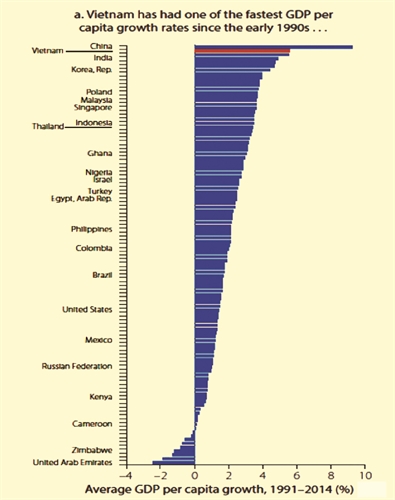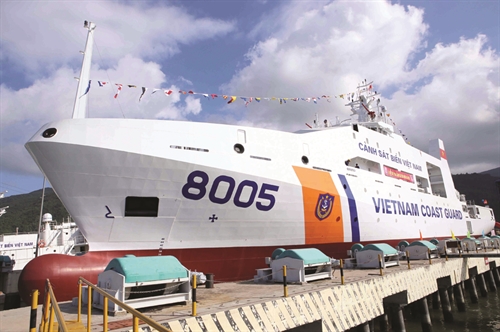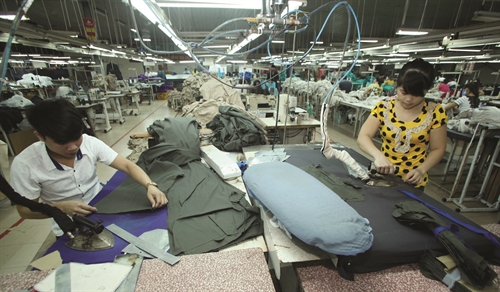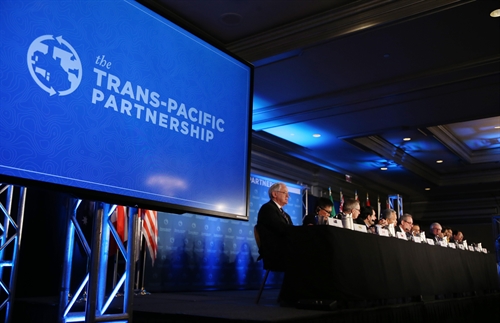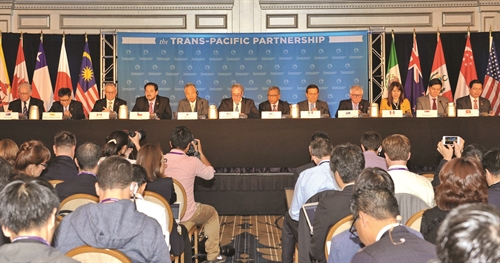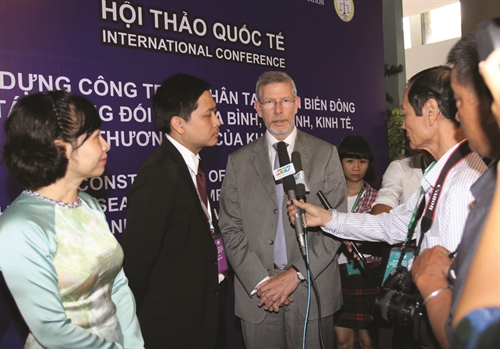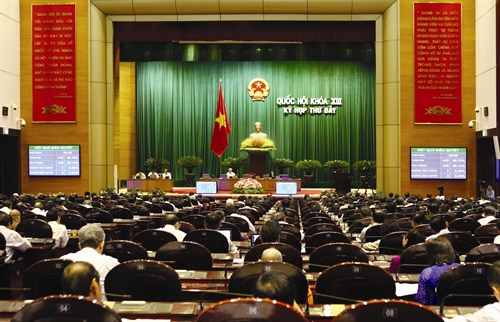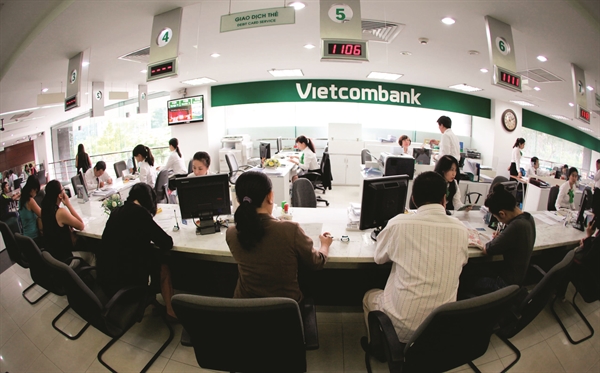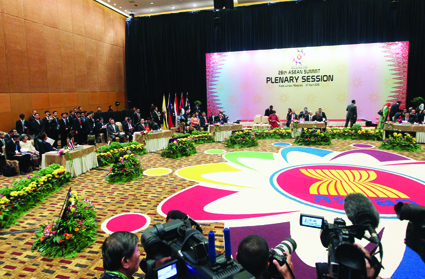Pham Thi Hong Dao
Thanh Hung Law Firm
To regulate international civil relations, nations have employed a common practice of incorporating conflict of laws provisions in their domestic laws and treaties to which they are contracting parties. The application of conflict of laws provisions by a nation indicates that it recognizes and permits the application of foreign law as a practical way to enhance multilateral and multifaceted relations with other nations. Realities also show that all nations recognize and permit, to different extents and on different conditions, the application of foreign law. In other words, the application of foreign law is inevitable and a peculiar feature of private international law.
When applying foreign law, an authority has to comply with certain legal conditions, bases and patterns which vary from nation to nation and are determined based on national sovereignty as well as the sovereignty equality among nations. Particularly, the application of foreign law must not contravene the fundamental principles of the social system and law of each nation.
 |
| Making export textiles and garments in Hong Kong-invested Tinh Loi Garmen Company in Lai Vu industrial park (Hai Duong province)__Photo: Danh Lam/VNA |
Vietnam’s regulations on application of foreign law
In Vietnam, the issue of selection of laws to regulate civil relations involving foreign elements is prescribed in various legal documents. Article 122 of the 2014 Law on Marriage and Family prescribes the applicable law to marriage and family relations involving foreign elements as follows:
“1. Unless otherwise provided by this Law, the legal provisions of the Socialist Republic of Vietnam concerning marriage and family are applicable to marriage and family relations involving foreign elements.
In case a treaty to which the Socialist Republic of Vietnam is a contracting party contains provisions different from those of this Law, the provisions of such treaty prevail.
2. In case this Law or other legal documents of Vietnam refer to the application of a foreign law, such foreign law shall apply, provided such application does not contravene the fundamental principles laid down in Article 2 of this Law.
In case a foreign law refers back to Vietnamese law, Vietnam’s marriage and family law shall apply.
3. In case a treaty to which the Socialist Republic of Vietnam is a contracting party refers to the application of a foreign law, such foreign law shall apply.”
Article 4 of the 2006 Law on Civil Aviation (revised in 2014); Article 5 of the 2005 Commercial Law; and Clause 3, Article 759 of the 2005 Civil Code all touch upon the application of the civil law of Vietnam, treaties, foreign law and international practices. Accordingly, foreign law may be applied in Vietnam on one of the three conditions below:
(i) there is a conflict of laws provision in a treaty concerning it;
(ii) there is a conflict of laws provision in a domestic legal document concerning it; and,
(iii) there is a choice of law agreement between involved parties.
So, foreign law may be applied not only when being referred to by a conflict of laws provision in a treaty but also when so agreed between parties in their contract.
The right of contracting parties to choose applicable law stems from the principle of freedom of will, or more specifically, freedom of contract and freedom of determination of contract text. In contractual relations, parties to a contract are not only free to negotiate, establish and perform the contract within a legally established framework but they are also free to agree on choice of a certain nation’s law to be applied to the contract. In addition, the provision on the freedom to choose applicable law reflects an inevitable development trend of private international law that every country should regard foreign law and its domestic laws as equally important, with a view to promoting international civil and commercial relations. Following the trend, Vietnamese law has paid increasing attention to the right of parties to international civil and commercial transactions to choice of applicable law. This right has been recognized in many legal documents, typically the 2005 Civil Code, the 2005 Commercial Law and most recently the 2015 Maritime Code.
However, deeper analyses of these and other relevant provisions of Vietnam’s law on the right to choose applicable law reveal some limitations below:
First, although allowing parties to a relation to choose foreign law or international practice to apply, Vietnamese law makes no mention on the right to choice of a treaty for application, especially in international commerce. Therefore, on principle, parties to relations may not choose to apply treaties relevant to their relations. For example, in the field of international trade in goods, parties have no right to directly choose the 1980 Vienna Convention to apply.
In practice, parties to contracts for international purchase and sale of goods may still indirectly choose this Convention by selecting a foreign law that permits (in their conflict of laws provisions) parties to choose applicable law, including a treaty, to apply. This is because Vietnamese law has provisions referring to the application of foreign law, including both substantive provisions and conflict of laws provisions (Clause 3, Article 759 of the 2005 Civil Code). If the applicable foreign law does not refer to Vietnamese law, it may refer to another foreign law or a treaty. The choice of the CISG in that way is necessary for Vietnamese traders once they intend to negotiate and enter into international goods purchase and sale contracts with foreign traders.
Second, Vietnamese law also lacks provisions on the choice by parties to a relation of a law to apply to the whole or part of their relation, on the point of time of choice of applicable law and on their right to change the chosen applicable law.
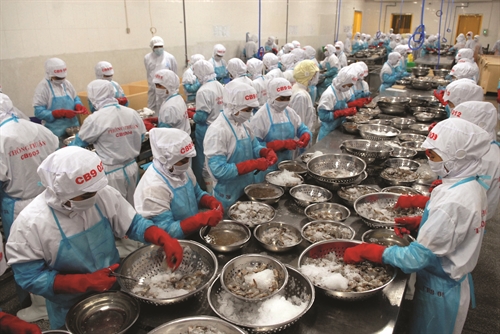 |
| Processing shrimps for export at Thong Thuan Co., Ltd., Ninh Thuan province__Photo: Manh Linh/VNA |
Application of foreign law at court and arbitration
Over the recent years, due to the growing number of civil, commercial, investment and labor relations between Vietnam and the international community, especially regional countries, the number of civil cases involving foreign elements accepted by Vietnamese courts for settlement has risen.
Despite that Vietnamese law has permitted the application of foreign law to settling civil cases involving foreign elements in certain circumstances and on given principles, it is a reality that Vietnamese courts and arbiters have rarely applied foreign law.
Article 14 of the 2010 Law on Commercial Arbitration determines the application of law as follows:
“1. For a dispute involving no foreign element, the arbitration council shall apply Vietnamese law to settling the dispute.
2. For a dispute involving foreign elements, the arbitration council shall apply the law selected by the parties. If the parties have no agreement on the applicable law, the arbitration council shall decide to apply a law it sees the most appropriate.
3. When the Vietnamese law or law selected by the parties contains no specific provisions concerning the dispute, the arbitration council may apply international practices to settling the dispute, provided such application or consequence of such application does not contravene the fundamental principles of Vietnamese law.”
To ensure effective arbitration, the support and supervision by the court is quite necessary, and the current Law on Commercial Arbitration has properly dealt with this issue. However, there remain some inappropriate provisions open to different ways of understanding concerning the role of the court toward arbitration. These include those on review of court rulings to cancel or not to cancel arbitral awards according to cassation or reopening procedures; court jurisdiction over operation of foreign arbiters in Vietnam; and provisional urgent measures to be taken in arbitration procedures. Particularly, the cancellation of arbitral awards by the court has caused concerns to the public and businesses when they decide whether to bring their disputes to arbitration.
The application of foreign law by Vietnamese courts is another debatable issue. Some jurists hold that a Vietnamese court does not break law if it applies Vietnamese law instead of foreign law even when disputing parties have selected the law of a foreign country to apply to their relation and such application is not objected by these parties. In this case, the parties are regarded as having abandoned their choice of foreign law and agreed to the application of Vietnamese law.
In the author’s opinion, the refusal of the court to apply foreign law when conflict of laws provisions lead to is a violation of law. As said earlier, the application of foreign law in a country totally depends on its will stemming from the requirement of protection of lawful rights and interests of its own and its citizens and legal persons in international civil exchange. However, once the application of foreign law has been provided in a country’s law, such provision has to be complied with.
Benefits of the accession to CISG
Economic benefits
Vietnam has embarked on the path of proactive and active integration into the world economy and stepped up its international commerce, in which trade in goods makes an important contribution to domestic economic growth, especially after the country joins the World Trade Organization (WTO). Therefore, the identification of a uniform source of law for regulating contracts for international purchase and sale of goods will bring about great economic benefits for the country since almost all commercial powerhouses in the world have acceded to CISG, including many traditional trade partners of Vietnam like China, the US, Italy, Russian Federation, Canada, Germany, the Netherlands, and Australia. Businesses from these countries have customarily applied CISG to goods purchase and sale contracts with foreign partners.
CISG will surely bring about three major economic benefits to Vietnam:
First, it will help simplify legal formalities and reduce legal costs for international commercial transactions
We all know that the fewer barriers the economy has, the more effectively and competitively the market can operate. Among the barriers to international commercial transactions, especially in a developing nation like Vietnam, the foreign law environment is the biggest. Moreover, very often in negotiations for conclusion of contracts between Vietnamese businesses and those of a developed country, the law chosen to regulate their contracts is that of the developed country as Vietnamese businesses are at a disadvantage in their negotiations. This has made it difficult for Vietnamese businesses to measure business results since the foreign law environment is often unstable and risky for them.
CISG constitutes a source of law which traders, who are usually not specialized in law, can easily understand as its drafters do not use legal jargons. A uniform source of law would help reduce expenses for studying laws before concluding contracts or settling disputes that might occur in the course of contract performance.
In addition, Vietnamese businesses, especially small- and medium-sized ones that account for 80 percent of the total, will not have to apply foreign law and have greater opportunity to protect themselves as they can avoid court litigations in a foreign country and application of foreign law, which are great disadvantages to them.
Second, CISG will create conditions for Vietnamese businesses to compete equally on the international market.
Entry into contracts based on a common legal ground will make it easier to weigh different offers on the market in terms of contractual risk, strictness and obligation. This helps increase the competitiveness of domestic businesses, thus bringing about major economic benefits.
Third, CISG will help promote exchange of goods between Vietnam and other countries.
As a uniform law, CISG has harmonized many conflicting provisions of different legal systems in the world and significantly contributed to settling conflicts of law in international commerce and promoted the development of international commerce. With its accession to CISG, Vietnam has a uniform source of law applicable to contracts for international purchase and sale of goods with foreign partners. Vietnamese and foreign traders now share a common legal ground and their goods purchase and sale relations will be further developed with fewer disputes.
Legal benefits
In addition to economic benefits, Vietnam’s accession to CISG will bring about several legal benefits:
First, Vietnam’s law on international trade still lacks specific provisions to regulate international goods purchase and sale transactions as it has been created primarily to regulate domestic civil relations. Therefore, it needs many complementary sources of international law. The accession to and application of CISG will help complete Vietnam’s legal framework, making it more stable, clearer and fairer and more conformable to international law.
Second, the fundamental principles of the Vietnamese law system, as a civil law system, are fairly compatible with those of CISG. This makes it easier for Vietnam to elucidate and use the terms of CISG compared to countries with common law systems.
Third, the translation of CISG’s provisions into domestic law will make court trial and arbitral processes in Vietnam more unified and easier because in every case there is only one source of law to be applied. Entrepreneurs, arbiters and judges will not have to study any other foreign source of law beside CISG. The elucidation and application of CISG is much easier than reference to a national law system because such is aided by the UNIDROIT principles, PECL, official comments of the CISG Advisory Council, cases on the CISG published on the UNILEX database and thousands of scholarly articles published on the official website of CISG (PACE).
Fourth, even if Vietnam did not accede to CISG, there remain many international commercial transactions involving Vietnamese parties to which CISG would be applied, specifically: i) if the conflict of laws provision leads to the law of a contracting party to CISG[1]; (ii) if all parties to a transaction choose to apply CISG; and (iii) when parties to a contract do not choose a law to apply and the court or arbiters choose to apply CISG to settling their dispute.
Other benefits
In addition to the above economic and legal benefits, Vietnam’s accession to CISG has a great political and diplomatic significance because CISG, originally established on the basis of harmonizing interests of socialist and capitalist countries, western and eastern countries, and developed and developing countries, is a very successful convention with an overwhelming influence on international trade in goods. Its accession to CISG marks Vietnam’s greater role in promoting the relationship between the Association of Southeast Asian Nations (ASEAN) and other countries and governmental institutions in the world.
Disadvantages of the accession to CISG
Economic disadvantages
Economic disadvantages of Vietnam’s accession to CISG are negligible because contracting parties are neither obliged to make financial contributions nor required to establish a specialized body to implement CISG nor obliged to make regular reports. The general principles of Vietnam’s contract law, the 2005 Civil Code and the 2005 Commercial Law which have been promulgated on the basis of referring to international law instruments, including CISG, are conformable with the principles of CISG. This is why Vietnam will not have to amend its current laws.
However, each field of international trade has its own standard contractual terms which traders have widely used in their transactions and will not wish to abandon. As a result, Vietnam’s accession to CISG does not mean that CISG can be used to regulate all international purchase and sale contracts involving Vietnamese parties. Moreover, the application of CISG to trading relations between Vietnamese businesses and business from non-member states remains limited.
Legal disadvantages
The text of CISG is quite novel to Vietnam’s legislative, judicial and arbitration systems. Apparently, Vietnamese businesses, courts and arbiters will need a huge volume of time to study and effectively apply its provisions to international trade transactions because so far in Vietnam there are few in-depth researches and training courses on CISG and its worldwide application. Vietnamese businesses and law practitioners also have no forum yet for exchanging CISG-related experience. This will weaken Vietnamese businesses in international commercial transactions and affect the capability of Vietnamese courts and arbiters in settling CISG-related disputes.-
